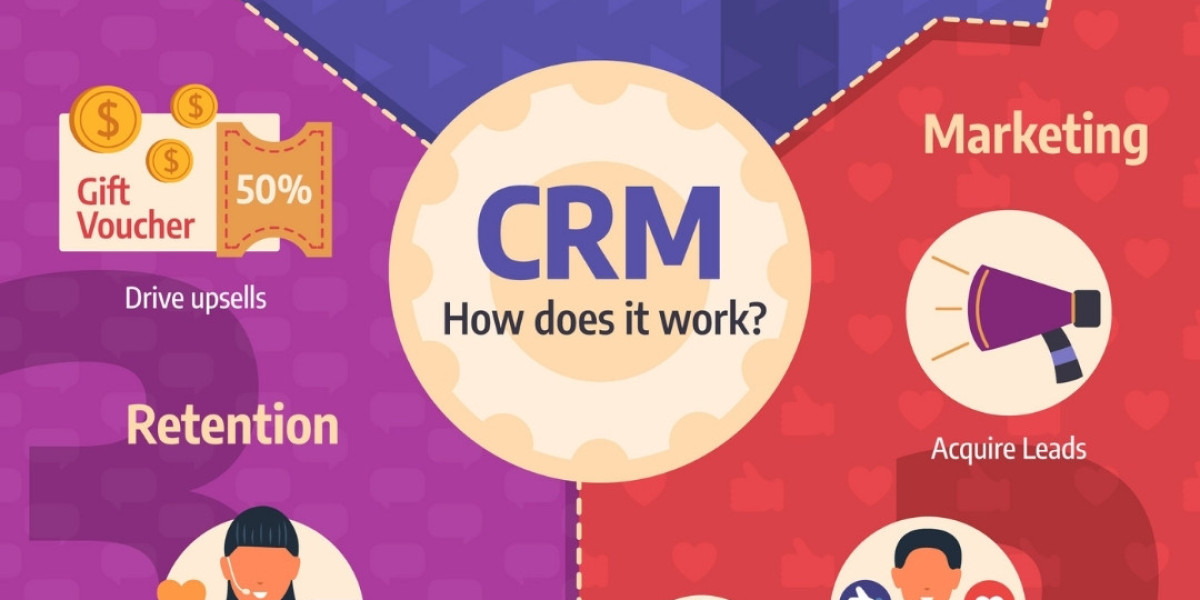Implementing a Customer Relationship Management (CRM) system can significantly improve how businesses manage customer interactions, streamline operations, and boost customer satisfaction. However, the process is often complex, and organizations may encounter various challenges that, if not properly managed, can lead to delays, increased expenses, or incomplete adoption.
In this article, we’ll explore the primary challenges businesses face during CRM implementation and offer solutions for overcoming these obstacles.
1. Integration with Existing Systems
One of the main challenges in Customer Relationship Management implementation is ensuring it integrates smoothly with the organization’s existing infrastructure. Many businesses use multiple systems for sales, marketing, finance, and customer service, which can complicate the integration process.
Key Integration Challenges:
- Compatibility Issues: Ensuring the CRM system works well with legacy software or third-party applications can be difficult, sometimes requiring custom solutions.
- Data Migration: Transferring data to the new CRM system can be time-consuming and prone to errors. Incorrect mapping may result in incomplete or inaccurate records.
Solution:
To reduce integration issues, businesses should assess their existing systems and how data flows between departments before choosing a CRM platform. Conducting a thorough software audit can help streamline the integration process.
2. High Implementation Costs
The costs associated with implementing a CRM and admission management system can be significant, especially for larger businesses. These expenses go beyond just software licensing and may include hardware, integration services, training, and ongoing support.
Factors Contributing to High Costs:
- Software and Hardware: The upfront costs of CRM software and any necessary hardware can be considerable.
- Customization and Integration: Tailoring the CRM to meet business needs and integrating it with other systems can increase costs.
- Consulting and Support: Many organizations need external consultants or technical support for implementation, adding to the total cost.
Solution:
Businesses can control costs by clearly defining the project’s scope from the outset. Opting for a cloud-based CRM solution can also reduce upfront hardware expenses.
3. Employee Resistance and Slow Adoption
Even if the CRM system is implemented successfully, gaining employee buy-in can be a significant hurdle. Employees may resist new technology, especially if they’re accustomed to existing tools.
Reasons for Resistance:
- Fear of Change: Employees might worry about how new technology will affect their job security.
- Learning Curve: A new system may be complex, requiring time for employees to learn and adapt.
- Perceived Lack of Value: Employees may not see the immediate benefits of using the CRM, especially if it seems to add tasks to their workload.
Solution:
Investing in comprehensive training and ongoing support is critical to encouraging adoption. Engaging employees early in the process and highlighting how the CRM will benefit them can reduce resistance.
4. Customization and Scalability Challenges
Businesses often require CRM systems to be customized to meet specific processes, but too much customization can complicate the system and hinder future scalability.
Customization Challenges:
- Time-Consuming Development: Customizing the CRM to align with unique workflows can take significant time and effort.
- Increased Complexity: As the company grows, the CRM may require further modifications, increasing its complexity.
- Vendor Limitations: Some CRM platforms may offer limited customization options, forcing businesses to choose costly workarounds.
Solution:
Select a CRM platform that offers both flexibility and scalability without relying on extensive coding. This allows the system to adapt to future growth without becoming too complicated or expensive to maintain.
5. Data Security and Privacy Concerns
CRM systems store vast amounts of sensitive customer information. Protecting this data is crucial, as breaches can result in financial losses and reputational damage.
Common Security Challenges:
- Cybersecurity Threats: CRM systems are attractive targets for cyberattacks due to the wealth of data they hold.
- Compliance with Regulations: Businesses must comply with data protection laws, adding complexity to managing customer information securely.
- Internal Security Risks: Without proper access controls, employees may gain unauthorized access to sensitive data.
Solution:
Implement strong security measures, such as encryption, two-factor authentication, and regular audits. Choose a CRM system that complies with relevant data protection regulations to ensure compliance.
6. Poor Planning and Project Management
Inadequate planning and project management can derail CRM implementation efforts, leading to delays, budget overruns, or an incomplete system.
Common Planning Mistakes:
- Undefined Goals: Without clear objectives, measuring the success of the CRM implementation becomes difficult.
- Underestimating Complexity: Some organizations underestimate the time and resources needed for successful implementation.
- Lack of Communication: Miscommunication between departments can result in a system that doesn’t meet all business needs.
Solution:
Effective project management is critical. Establish clear objectives, set a realistic timeline, and ensure regular communication between all stakeholders to keep the project on track.
7. Managing User Expectations
Managing user expectations is often an overlooked challenge during CRM implementation. Different departments may have varying expectations, which can create conflicting priorities.
Expectation Management Challenges:
- Overpromising on Capabilities: CRM vendors or internal advocates may overstate what the system can achieve, leading to disappointment.
- Unrealistic Timelines: Stakeholders may expect immediate results without considering the time needed for proper implementation and employee adaptation.
Solution:
Set realistic goals from the beginning and communicate the system’s capabilities and limitations clearly. Regular updates throughout the process will help ensure that all stakeholders have aligned expectations.
Conclusion
Implementing a CRM system offers numerous benefits, including improved customer relationships and streamlined operations. However, recognizing and addressing challenges like integration, cost, employee resistance, and security concerns is essential for a successful implementation. With careful planning, continuous training, and open communication, businesses can overcome these challenges and fully leverage the advantages of a CRM system.








